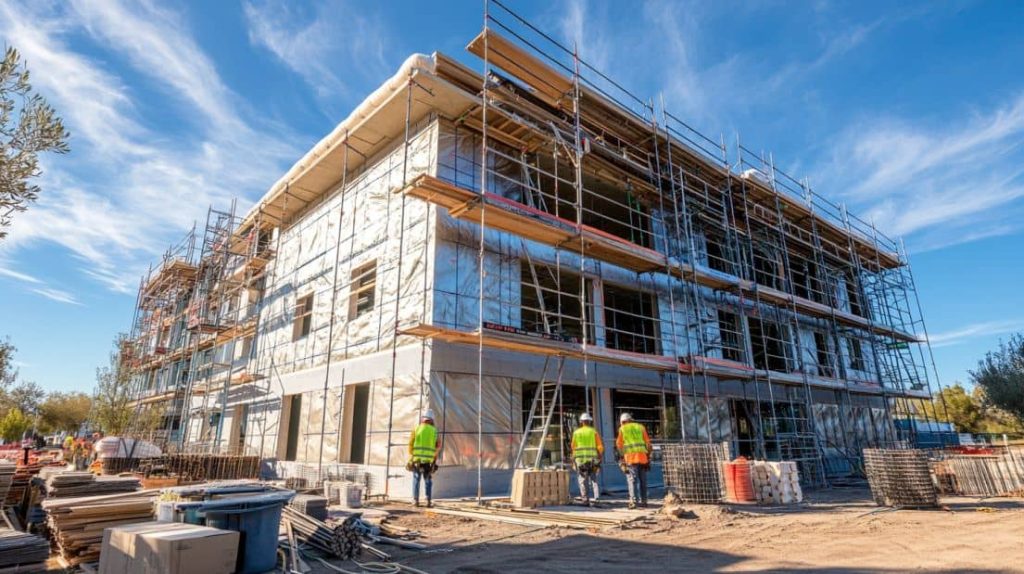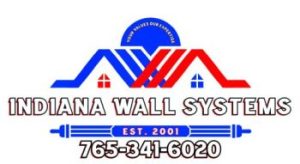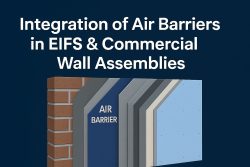Essential EIFS Insights for Modern Construction

Exterior Insulation and Finish System (EIFS) has become a prevalent choice in modern construction for both residential and commercial properties. This sophisticated wall cladding system offers a unique blend of insulation and aesthetic appeal, making it an ideal solution for various building applications. Understanding “What is EIFS in construction?” and its significance can help you make informed decisions for your projects.
What is EIFS in Construction?
EIFS, or Exterior Insulation and Finish System, is a multi-layered wall system used extensively for exterior wall cladding. Originally developed in Europe, EIFS gained popularity in the United States in the 1960s and has since evolved into a versatile and reliable construction method. The primary function of EIFS is to provide superior insulation while offering a durable and aesthetically pleasing finish.
A typical EIFS consists of several layers, including an insulation board, a base coat with reinforcing mesh, and a finish coat. The insulation board, usually made of expanded polystyrene (EPS), is adhered to the wall’s exterior surface.
The base coat, applied over the insulation, contains a reinforcing mesh to add strength and durability. Finally, the finish coat brings the exterior with its desired texture and color, contributing to the building’s overall visual appeal.
The Benefits of Using EIFS
Energy Efficiency
One of the most significant benefits of EIFS is its superior insulation properties. The system creates a continuous insulation barrier that helps reduce heat loss during the winter and keeps interiors cool during the summer. The energy efficiency translates into lower heating and cooling costs for building owners.
Versatility in Design
EIFS is available in various textures and colors, allowing architects and designers to achieve virtually any aesthetic look. Whether aiming for a traditional stucco appearance or a modern, sleek finish, EIFS can be customized to meet your design preferences.
Durability and Weather Resistance
EIFS is designed to withstand various weather conditions, including rain, wind, and extreme temperatures. The system’s multi-layered structure provides excellent protection against moisture infiltration, which can lead to mold and mildew growth in other types of wall systems.
EIFS Installation Process
Proper installation is critical to ensuring the performance and longevity of an EIFS. Here’s an overview of the typical installation process:
- Surface Preparation: Before the EIFS application begins, the wall surface must be cleaned and prepared. It may involve repairing any cracks or damage and making sure the surface is smooth and contaminant-free.
- Attachment of Insulation Board: The insulation board, usually made of EPS, is cut to fit and adhered to the prepared surface using a special adhesive. The boards are then fastened securely to guarantee they stay in place.
- Application of Base Coat and Reinforcing Mesh: A base coat is applied over the insulation board, and a reinforcing mesh is embedded into the coat while it is still wet. This mesh provides additional strength and helps prevent cracking.
- Application of Finish Coat: Once the base coat has dried, the finish coat is applied. The coat gives the wall its final appearance and provides additional protection against the elements.
- Curing and Inspection: After application, the EIFS must be allowed to cure properly. Once cured, a thorough inspection by certified EIFS inspectors ensures that the installation meets all required standards and specifications.
Choosing a Certified EIFS Contractor
Selecting the right contractor is crucial when it comes to EIFS installation. A certified EIFS contractor brings a wealth of experience and expertise to the project so that every process step is done correctly. Certification from organizations indicates that the contractor has undergone rigorous training and adheres to industry best practices.
Hiring a certified contractor also provides peace of mind that the work will be done to the highest standards, minimizing the risk of future problems such as moisture infiltration or improper insulation. Additionally, certified contractors are often better equipped to handle EIFS repair work, should any issues arise after installation.
Common EIFS Problems and Solutions
While EIFS offers many benefits, like any construction system, it can experience problems if not installed or maintained correctly. Some common issues include:
- Moisture Intrusion: If the system is not properly sealed, water can penetrate the layers, leading to mold growth, deterioration of the insulation, and damage to the underlying structure. Regular inspections and prompt repairs by EIFS contractors are essential to prevent moisture-related issues.
- Cracking: Cracks in the finish coat can occur due to movement in the building, impact damage, or improper installation. These should be repaired promptly to prevent further damage.
- Delamination: It occurs when the insulation board detaches from the substrate or when the base coat separates from the insulation. Delamination can be a result of poor adhesion during installation or moisture intrusion. Addressing delamination early with EIFS repair services can prevent more extensive damage.
Maintaining and Repairing EIFS
Regular maintenance is key to preserving the integrity and appearance of an EIFS. Simple tasks such as cleaning the surface to remove dirt and debris can help maintain the system’s aesthetic appeal. In addition, periodic inspections by qualified EIFS inspectors can identify potential issues before they become serious problems.
When repairs are needed, it’s important to hire experienced EIFS contractors who understand the system’s intricacies. Repairs might include addressing cracks, resealing joints, or replacing damaged sections of the insulation board. Timely EIFS repair can extend the system’s life and protect your investment.
The Role of Exterior Painting with EIFS
Exterior painting plays a significant role in the maintenance and aesthetic upkeep of EIFS. While the finish coat of EIFS is designed to be durable, over time, exposure to the elements can cause fading or discoloration. Repainting can refresh the appearance of the building and add a layer of protection against UV rays, moisture, and other environmental factors.
Using the right type of paint when working with EIFS is essential. Exterior painting contractors experienced with EIFS will select high-quality, breathable paints that do not trap moisture, thereby preserving the system’s integrity.
Why Quality Matters in EIFS Construction
The quality of materials and workmanship in EIFS construction cannot be overstated. Top-tier materials are crucial for the durability and performance of the system. When corners are cut on quality, the likelihood of issues such as cracking, delamination, or moisture infiltration increases significantly.
Our application methods at Indiana Wall Systems have been developed over decades, with a key emphasis on strengthening the typical problem areas in EIFS applications. This approach, combined with our use of premium materials, ensures that our installations stand the test of time. We also bring a ten-year warranty on our EIFS projects, reflecting our confidence in the quality of our work.
Certifications and Industry Standards
When choosing an EIFS contractor, certifications can be a valuable indicator of a company’s qualifications and commitment to excellence. At Indiana Wall Systems, we hold several important certifications, including:
- Better Business Bureau (BBB) Accreditation: It ensures that we adhere to high business ethics and customer service standards.
- Master Builders Certification: A mark of quality and reliability in the construction industry.
- Senergy Certification: Demonstrating our expertise in working with one of the leading EIFS brands.
- EIFS Installers Certification: Signifying our comprehensive knowledge and skill in EIFS installation and repair.
These certifications give our clients confidence that they are working with a reputable company that prioritizes quality, safety, and customer satisfaction.
Selecting the Right EIFS Company for Your Project
Choosing the right EIFS company is a critical decision that will impact the long-term success of your project. When evaluating EIFS companies, consider factors such as:
- Experience and Expertise: Look for companies with a proven EIFS installation and repair track record. Experienced companies are more likely to handle complex projects and unexpected challenges effectively.
- Customer Reviews and Testimonials: Positive feedback from previous clients can provide valuable insights into the company’s reliability and quality of work.
- Warranties and Guarantees: A company that delivers a robust warranty, like our ten-year warranty, demonstrates confidence in the durability of their work.
- Certifications and Credentials: As discussed, certifications from recognized organizations strongly indicate a company’s qualifications.
Indiana Wall Systems has over 22 years of experience in the EIFS industry and 160 years of expertise among our team members. Our commitment to quality, safety, and customer satisfaction has made us a trusted name in EIFS installation and repair across Indiana, Kentucky, Ohio, Tennessee, Michigan, and Illinois.
Our application methods have been honed over decades, making sure we address common problem areas in EIFS systems, providing our clients with a long-lasting and visually appealing exterior. If you’re looking for a reliable partner for your EIFS project, contact us today at Indiana Wall Systems. Our certified EIFS contractors are ready to help you with everything from new installations to repairs and maintenance.

